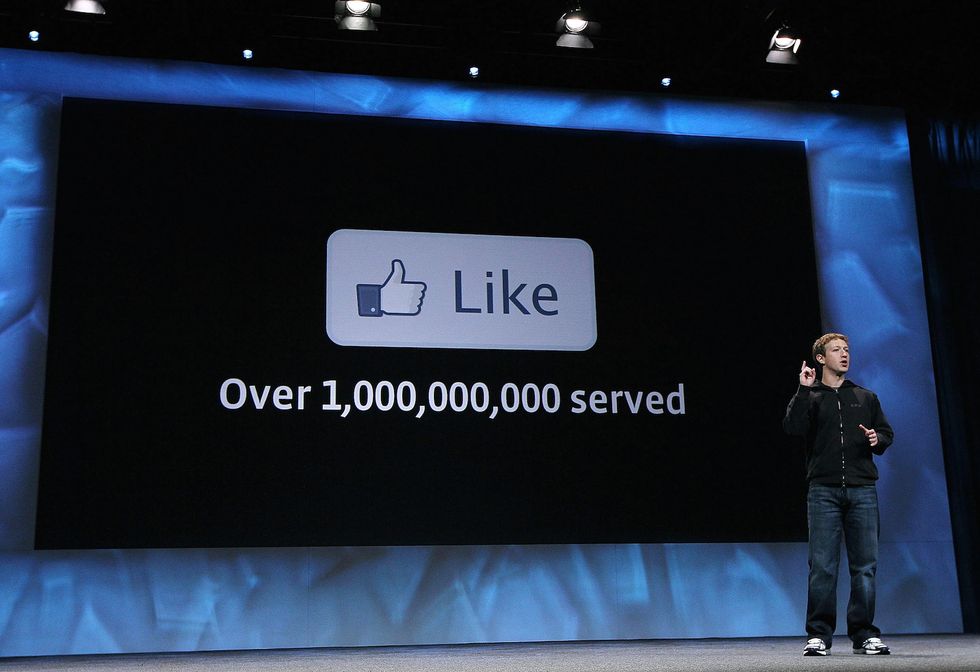
Facebook founder and CEO Mark Zuckerberg delivers an address in San Francisco, California. (Justin Sullivan/Getty Images)

Facebook has taken an innovative — and arguably more responsible — approach to identifying and weeding out "fake news": They've asked their users to help.
Fake news has been blamed for everything from the election of Donald Trump to the recent (and frightening) situation in Washington, D.C., when a man entered a neighborhood pizza parlor with a gun to "self-investigate" a fake news report about a child sex ring allegedly operating out the establishment.
And if reports are to be believed, much of the fake news that circulates is generally shared on social media sites such as Facebook.
Facebook and other tech giants like Google have suggested that they might begin blocking known fake news sites. Now it appears that Facebook is doing double duty by asking users to help them identify misleading reports with short surveys underneath posts. The goal, according to Forbes, is for users to help identify if if they see some sort of factual or misleading problem with the text or headline of the story. Word of the surveys first bubbled up on Twitter:
From Forbes:
[After the election] Zuckerberg promised to strengthen Facebook’s algorithms for classifying fake news, and to make it easier for users to flag content as false.The surveys being spotted across Facebook now are almost certainly an example of the promised flagging feature. But Facebook may continue to find itself under pressure until it takes more aggressive steps to filter out misleading news stories with its own algorithm or an internal team of human fact-checkers and editors.
But will the crowdsourcing work? Forbes is skeptical, saying, "If the system can already be gamed by members of the crowd, Facebook’s surveys are just as open to being manipulated by Internet trolls or members of the public."
Tech news site Techspot is more optimistic, however:
The survey approach is clearly different from a team of news experts at Facebook deciding what's real and what's not, but this could be part of a multi-step plan. Zuckerberg's mission to clean up his site will no doubt take time and many different strategies. There will still be users who believe the fake stories, so this must be accounted for. Hopefully a team of fact checkers and linguists, a beefed up algorithm, and crowdsourced flagging can help make this issue yesterday's news.
Either way, the data Facebook is compiling on what users consider fake should be interesting.